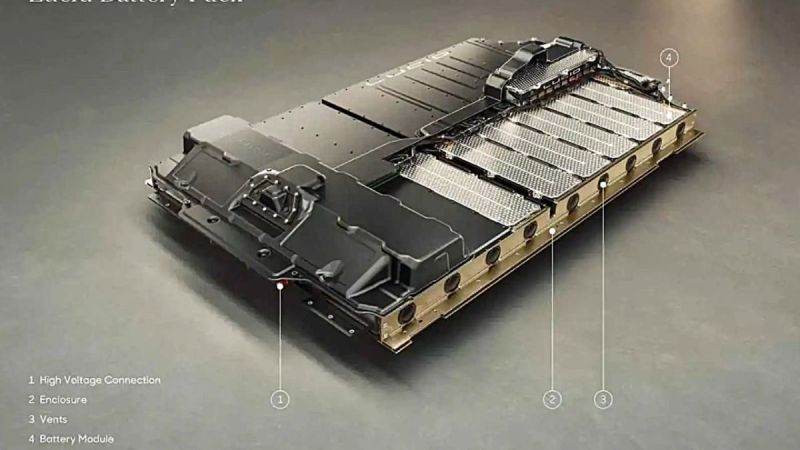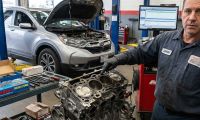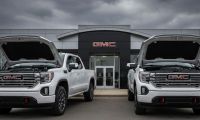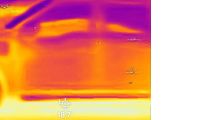The electric vehicle (EV) industry is poised for a paradigm shift, driven by the promise of a new battery technology: solid-state batteries. These next-generation power sources hold the potential to revolutionize EVs, offering significantly increased range, faster charging times, and enhanced safety compared to today's lithium-ion batteries. This development poses a critical question for automakers like Lucid Motors, a name synonymous with cutting-edge EV technology. Will Lucid's current battery tech weather the storm, or will the company need to adapt to ride the solid-state wave?
The Solid-State Promise: A Game-Changer in the Making
Solid-state batteries differ from their lithium-ion counterparts by replacing the flammable liquid electrolyte with a solid, non-flammable material. This change unlocks a cascade of benefits. Solid-state batteries boast higher energy density, meaning they can pack more energy into a smaller space, translating to an increased range for EVs. Additionally, their solid composition allows for faster charging and eliminates the risk of thermal runaway, and the potentially catastrophic overheating of lithium-ion batteries. Furthermore, solid-state batteries are expected to have a longer lifespan, reducing waste and maintenance costs.
However, the path to widespread adoption is not without its hurdles. Cost, scalability, and manufacturing complexities remain significant challenges. While research and development are progressing rapidly, experts predict mass production of solid-state batteries to begin between the late 2020s and early 2030s. Initial adoption is likely to be slow, with premium EVs being the first beneficiaries. As manufacturing costs decrease and production scales up, we can expect wider penetration across the EV market.
Lucid's Battery Tech: A Force to Be Reckoned With (For Now)
Lucid Motors entered the EV scene with a bang, boasting impressive battery technology in its flagship Air sedan. The current iteration utilizes a 2170 cylindrical lithium-ion battery pack, known for its high energy density and efficiency. Additionally, Lucid's proprietary Wunderbox charging units leverage high-voltage DC fast charging, enabling rates of up to 300 kW, and significantly reducing charging times.
The company also invests heavily in research and development, collaborating with leading battery suppliers and research institutions to explore next-generation technologies. While details of their research efforts are confidential, their commitment to innovation suggests they are actively preparing for the future.
Efficiency Showdown: Solid-State vs. Lucid's Current Tech
Comparing the theoretical efficiency of solid-state batteries with Lucid's current technology paints an interesting picture. Solid-state promises a 50-100% increase in energy density, potentially translating to a range increase of 300-600 miles on a single charge. Charging times could be reduced by 50-80%, potentially enabling "gas station"-like refueling experiences.
However, it's important to remember that these are theoretical gains. Lucid's current technology already delivers impressive efficiency, with the Air Grand Touring boasting a range of 520 miles and DC fast-charging capabilities surpassing most competitors. While not as groundbreaking as solid-state might be, Lucid's technology remains highly competitive in the current market if not the best available in the market
Lucid's R&D Potential: Navigating the Wave or Facing the Current?
The emergence of solid-state batteries is set to disrupt the electric vehicle market, offering both opportunities and challenges for automakers. This development is particularly significant for Lucid. While their current technology is competitive, the potential advancements presented by solid-state batteries could become a threat if they are not adequately prepared.
Therefore, Lucid's investment in Research and Development takes on critical importance. Actively participating in the development and production of new technologies in batteries, charging, and efficiency could potentially keep them at the forefront of innovation. It's noteworthy that Peter Rawlinson is not stopping there; he continues to work on a new design, aiming for increased power density and reduced weight to extract maximum efficiency from the battery, allowing Lucid cars to travel farther and more efficiently.
Additionally, the E racing technology, currently adopted by Porsche and prevalent in every E Formula race car on the tracks, showcases the rapid evolution of electric vehicle performance. Lucid's engagement in such advancements aligns with the industry's push towards cutting-edge technologies and sustainable racing solutions whether it is on the race track or on the streets.
EV Buyer Considerations: Wait or Drive Away?
Car buyers facing the prospect of purchasing an electric vehicle today are confronted with the solid-state dilemma, posing a distinctive challenge. The question arises: should they hold off for potential breakthroughs in the future or embrace the impressive technology currently at their disposal?
The decision depends on individual needs and priorities. Individuals prioritizing maximum range and charging speed may deem it prudent to wait for solid-state technology, especially if they can afford to postpone their purchase until it matures and outperforms lithium batteries, even if it comes at a higher cost. They will then need to assess the comparative technology difference, as Lucid 10 years from now might offer advancements surpassing the Lucid technology today, the future remains uncertain, and no one can predict what it holds.. When someone asked Peter Rawlinson, CEO and CTO of Lucid Motors, about this, he responded with a smile, saying, "...I'll believe it when I see one..."
Loc Trang is an automotive expert and currently a bullish fan of Lucid Motors. He is the administrator of Lucid Motors Investors and Lucid Owners Club groups among others on Facebook and covers news and opinion on Lucid Motors. You can follow him on X at Logan-T for more.












Comments
The tricky part is that…
Permalink
The tricky part is that there seems to be announcements of new, revolutionary battery technologies weekly, and getting a realistic assessment as to when (or if) competitively priced, volume production will occur is not included with the cool battery announcement. Toyota has been saying for many years now that solid state batteries are just right arounf the corner, but we are still not seeing any announcements of them in production vehicles, and most likely when Toyota does come out with SS batteries, they will be initially limited to hybrid vehicles, at least for the first few years. Ultimately, other competitive batteries may come out in the meantime like lithium sulfur or aquious zinc that offer comparable energy density and long life for a lower cost.
Agreed. There is a lot of…
Permalink
In reply to The tricky part is that… by DeanMcManis (not verified)
Agreed. There is a lot of smoke out there about batteries, but nothing really delivered or close to delivery now.
Solid State will be…
Permalink
Solid State will be fantastic when it actually arrives in an affordable package. We are far away from that time now, but in 6 to 10 years?